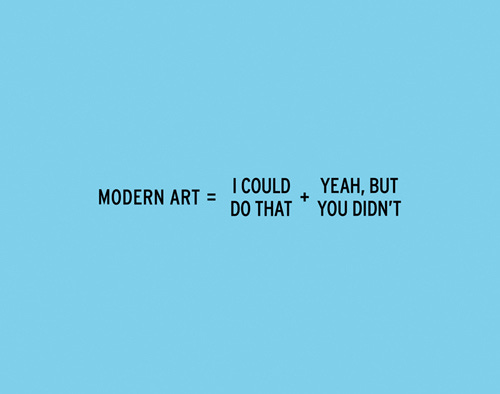why I write: a verbal moodboard
on muscles, membranes and (literal) word vomit
The easy thing about writing is anyone can do it. The hard part? Actually doing it.
Writing well requires practice—a lot of it. It’s often referred to as a muscle, something that needs regular exercise and repetitive attempts to stay in shape. Like any part of our physical bodies, it follows the same rule: ‘Use it or lose it!’
As a verbal thinker, I may have a slight advantage when it comes to lifting the proverbial word-weights. Though it’s by no means a guarantee of better quality or an excuse to not put the work in. My ability to recall conversations in vivid detail, memorise quotes, or commit song lyrics to memory after just one listen has always felt a bit uncanny. But while these instances may serve as mental reps, building up my muscles, they don’t fully capture the impulse that drives me to write in the first place.
Beyond a muscle, writing also acts as a membrane—something that straddles our inner and outer worlds. But instead of serving as a boundary that separates the two, it’s more a kind of connective tissue that brings them more closely into alignment. In this way, writing is a conduit that allows us to engage with the world more deeply, beyond our immediate reality, and even grasp at the sensation of experiencing what it could be like to live alternate realities.
Wikipedia defines a membrane as a “selective barrier,” which more closely describes what I’m getting at: the process of sorting, filtering, and organising thoughts until they find their way onto the page or screen. This membrane acts as a two-way partition through which our experiences pass, lodging in the mind and mingling with the other mind stuff that is already in there, helping us to categorise and come to terms with the realities we encounter.
More and more, I find myself turning to reading and writing to grapple with the fact that I only get to live out one life. Chewing on the cud of my one earthly existence lets me experience life once on the way down—as I go about my day and live it all in real-time—and once again on the way back up, when I regurgitate it back onto the page.
It’s a literal kind of word vomit: digesting inputs, letting them stew around in their acids, and with a bit of a gurgle, they’re ready to come back up.
Except, in the process of regurgitation, writing does more than just reproduce experiences—it amplifies them. When we write, we apply our own seasoning, enhancing their flavor profiles and textures through the lens of whatever mood or mindset we are in the second time around. We apply our own aesthetic conditions—our unique perspectives, emotional states, and creative instincts—all of which shape how these experiences are consumed by the reader.
George Orwell captures this interplay in his essay, Why I Write. Among the four reasons he gives for why anyone writes, one stands out to me:
(ii) Aesthetic enthusiasm. Perception of beauty in the external world, or, on the other hand, in words and their right arrangement. Pleasure in the impact of one sound on another, in the firmness of good prose or the rhythm of a good story. Desire to share an experience which one feels is valuable and ought not to be missed.
What this captures, I think, is the inexplicability of why certain words in certain orders just work. Whether it’s the visceral image they conjure in the reader’s mind, the pleasing rhythm they create when read out loud or as an internal monologue, or the seamless transfer of emotion from writer to reader.
This process of adding our own aesthetic conditions turns writing into a kind of alchemy. We take the raw material of our experiences and transform it into something richer, more vivid, and deeply personal. Through this act of retelling, we offer a new version of the original story—one that is not just a reflection of the past but also a product of our present self.
It’s said that there is no such thing as original thought, but perhaps that isn’t (or shouldn’t) be the goal of writing. Every time we revisit and retell an experience, we add new layers, nuances, and interpretations. It’s like preparing the same dish with a different set of ingredients or cooking methods each time. The core remains the same, but the outcome is uniquely flavoured by our current musings, feelings, and insights.
And yet, for me the paradox of writing is knowing that nothing I pen will ever compare to the works of those whose muscles are far more honed than mine. It’s a frequent occurrence—reading a beautifully crafted sentence and having three instantaneous reactions: 1) thinking ‘I wish I’d written that’, 2) realising I’ll never write something as perfect, yet 3) feeling compelled to try anyway.
But perhaps that’s the very motivator that drives me to put my words out there. Or should I say, out here? Maybe, someday, after I’ve put enough reps in, someone will read something I’ve written and think ‘I wish I’d written that,’ before picking up their pen to give it their best shot.
Because, after all, what is an essay but an attempt to make intangible thoughts tangible?
what’s simmering
experimenting with a new section for sharing less-formed thoughts and light seasonings to my longer-form essays
Days since last bolognese: 16. Technically I didn’t order it for myself but I did manage to poach a small portion from my partner’s plate. What’s that saying? Nothing haunts us like the bolognese we don’t order.
I’ve been getting the hang of Sublime and curating my library of life inputs. I leaned on it heavily to organise my thoughts while writing this post.
Late to the game (classic millennial) but I was tickled by how un-brat this analysis of brat summer is (and how un-brat brat is now that it’s so mainstream).
A moment of awe on a distracted Friday afternoon wondering how big the sun is compared to other stars, inspired by my last post. Spoiler: it’s not.
Some cud to chew on: What ingredients are you putting in the collective stew of humanity?












writing as a membrane - I wish I'd written that :)
I've been thinking a lot about why I write recently, and what you've written here really captures the essence of it. I liked when you wrote about a sensation of living out an alternative reality. I also think that sometimes, writing helps me more actively appreciate the current reality. It encourages me to pay a lot more attention to my life (even the parts of it that might seem boring) and, when I'm writing a lot, I tend to seek out experiences to have something to write about. Thus, the writing makes my actual life more exciting too.